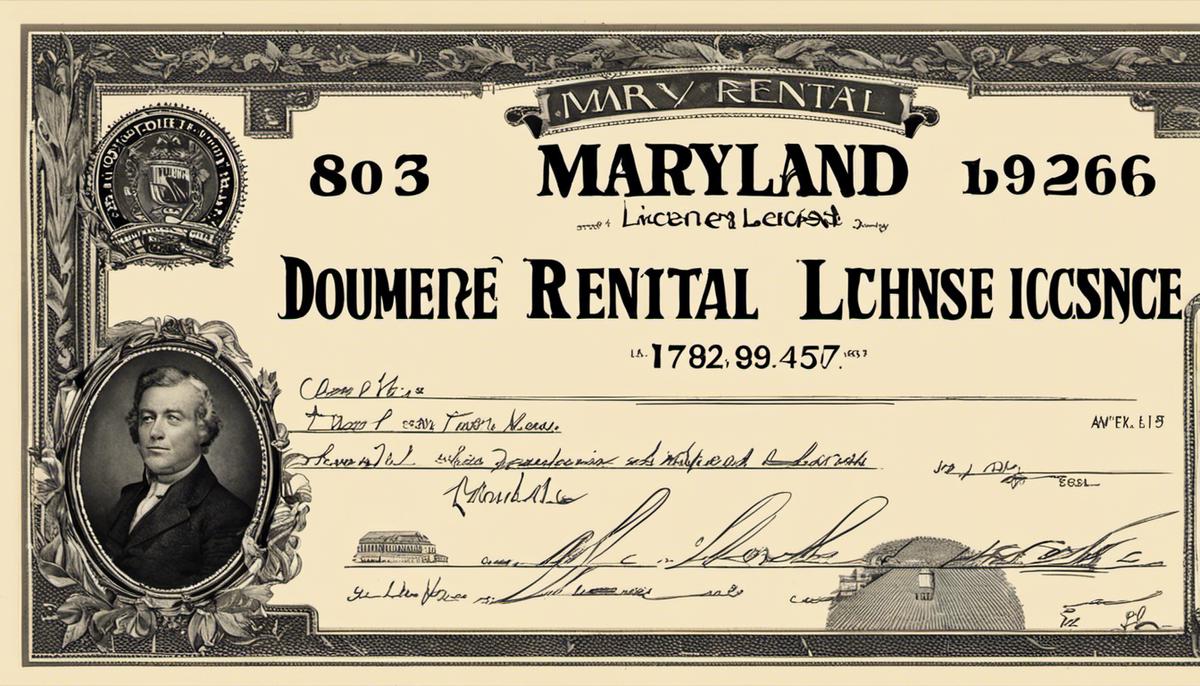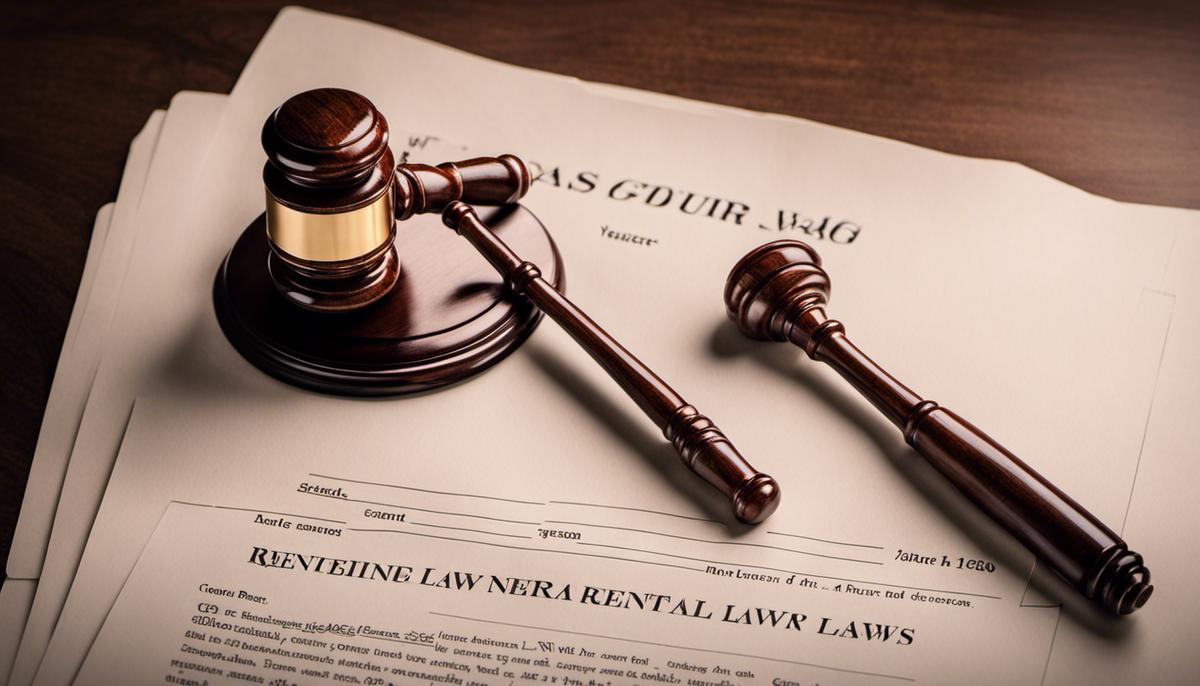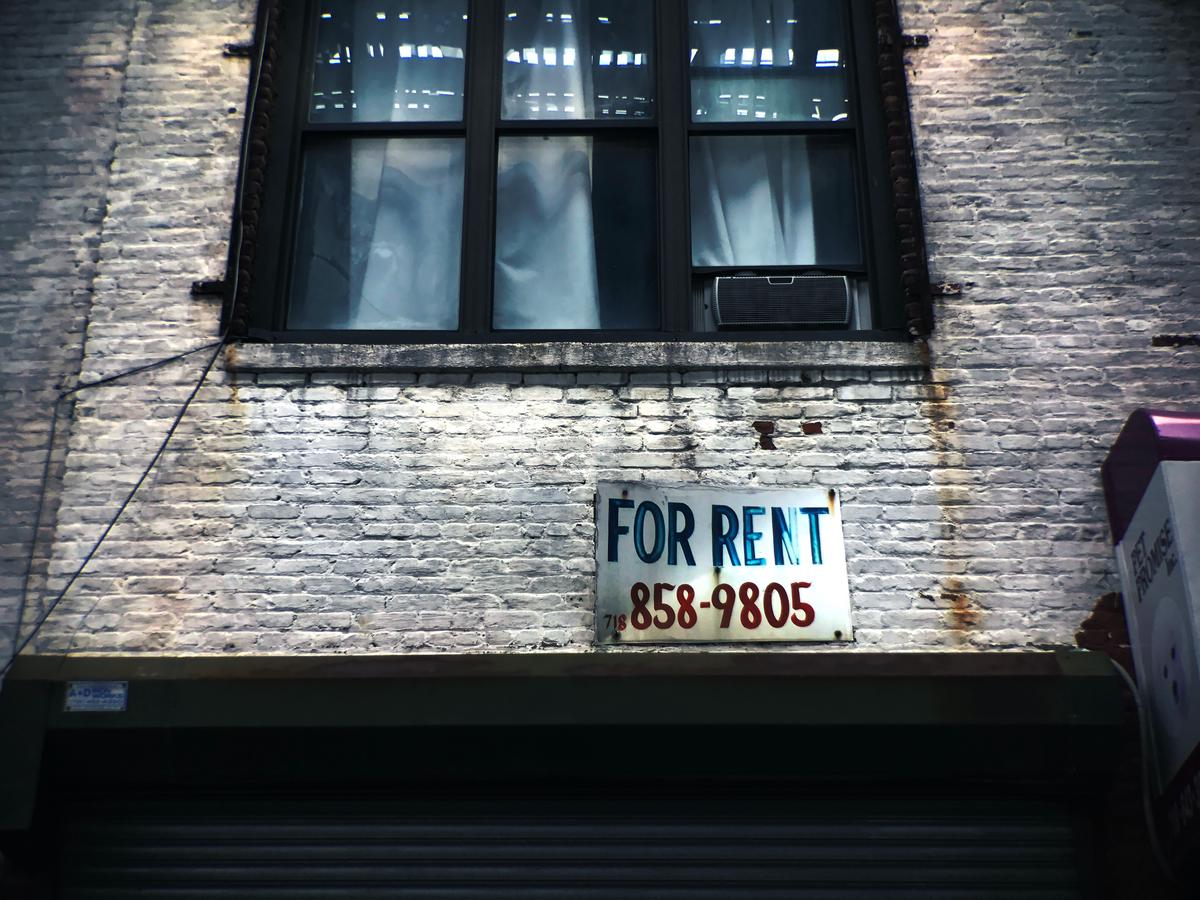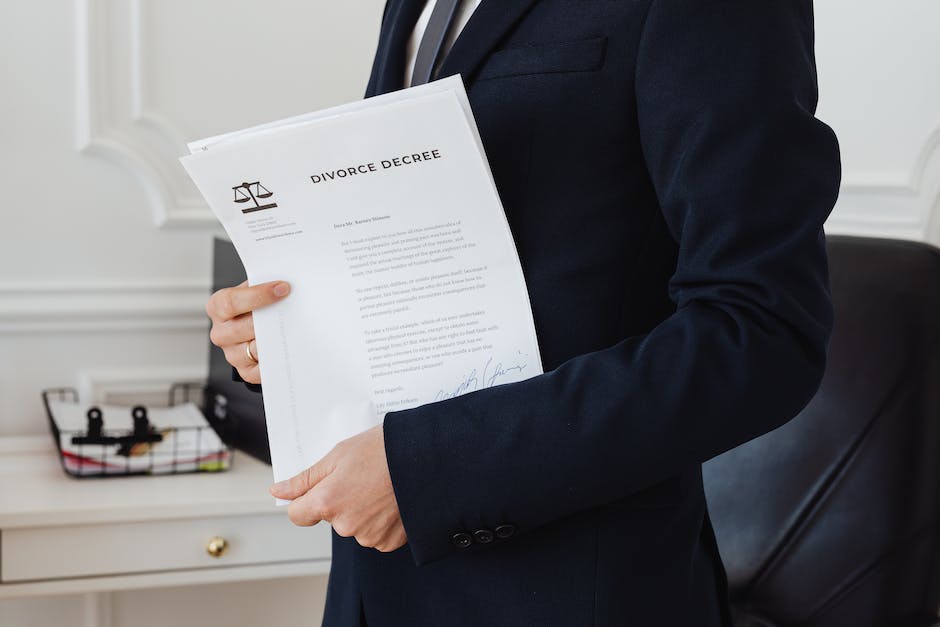In the state of Maryland, owning a rental property involves more than just leasing it to tenants. It requires a deep understanding of and compliance with state-specific landlord and rental regulations, most notably, the requirement for a rental license. In this discourse, we delve into the intricacies of Maryland’s rental licensing laws and the repercussions of non-compliance. We will shed light on real-world case studies to illustrate the seriousness of the law and its enforcement, and guide potential landlords on the roadmap to obtaining the necessary rental license. Finally, we’ll emphasize the legal protections available for renters who find themselves in unlicensed properties.
Licensing Requirements in Maryland
Legal Statutes for Rental Licenses in Maryland
In Maryland, the law stipulates that any individual, company, or business entity operating as a landlord must obtain a rental license. This requirement is stated under Maryland Code, Real Property Section 8-208, also known as the Landlord Tenant Act. The mandate aims to ensure that all rental properties are safe, habitable, and meet all the necessary building and health standards.
Types of Rental Licenses in Maryland
There are different types of rental licenses in Maryland, including multifamily licenses, single-family licenses, and rental condominium licenses. The specific type of license a landlord needs depends on the property type. A multifamily rental license, for instance, is necessary for landlords operating apartment complexes or multiple rental units within a single building. Single-family licenses are for landlords renting out individual houses, while rental condominium licenses are necessary for landlords owning and renting condominium units.
Acquisition of a Rental License
To acquire a rental license in Maryland, landlords need to submit an application to the county or city where the rental property is located. The application should include identifying information about the landlord and details about the rental property, among other requirements. It’s also necessary to pay an application fee, which varies based on the county or city. The property must also pass a Department of Housing and Community Development inspection before the landlord can obtain a license.
Implications of Renting Without a License
Renting without a license in Maryland carries serious legal implications. The Maryland Attorney General’s Office may issue fines or penalties for non-compliant landlords. Furthermore, a landlord without a rental license cannot legally evict a tenant or collect rent. Additionally, renting without a license may expose a landlord to potential lawsuits from tenants, who may also be allowed to recover their rent payments if the property is found to be unlicensed.
Penalties for Non-Compliance
If a landlord is found to be operating without a valid rental license, they could face monetary penalties that can range from $500 to $1,000 per violation. Moreover, each day that the violation continues could constitute as a separate offense, resulting in escalating fines.
Legal Liability
Beyond the potential fines and penalties, landlords who fail to obtain a rental license expose themselves to legal liability. Since Maryland enables tenants to reclaim rent if they have been living in an unlicensed property, landlords could be forced to refund substantial amounts of rental income. Furthermore, if the property has not gone through the required rental housing inspection, landlords might be held liable for any injuries or health problems resulting from unsafe conditions in the building.
In summary, obtaining a rental license is a crucial requirement for all property owners in Maryland who wish to lease their property. Not adhering to this prerequisite may not only lead to financial repercussions but also make a property owner susceptible to potential legal actions from tenants.

The Penalties for Unlicensed Renting
Understanding Maryland’s Rental License Requirements
The entire process of leasing properties in Maryland is governed by the Department of Housing and Community Development’s Rental Licensing Program. They are tasked with the responsibility of regulating landlords and property managers, ensuring they uphold the highest standards of tenant safety and health. This commitment includes compliance with the building codes and property standards set forth by the authority.
Risk of Renting Without a License
If a landlord chooses to forego this necessary legwork and rents out a property without a license, they run significant risks. One of the major implications of this is that the landlord could face penalties from the Maryland Department of Housing and Community Development (DHCD). The DHCD has full legal authority to impose fines and place liens on the properties of unlicensed landlords. In addition, the local jurisdiction such as the city or county might also impose fines and penalties.
Should the case go to court, a landlord found guilty of renting without a license in Maryland would be unable to legally enforce a lease agreement. This could mean that the landlord has limited or no legal recourse if a tenant refuses to pay their rent or causes damage to the property. In serious cases, the court could even dictate that the landlord must reimburse the tenant for all rent paid during the unlicensed period.
Financial Implications of Renting Without a License
From a financial perspective, the penalties for renting without a license in Maryland can be severe. The Maryland Department of Housing and Community Development can impose an initial fine of up to $1,000, with additional fines of $500 for each day the property remains unlicensed. This financial burden could quickly escalate, making the cost of obtaining a rental license a better long-term investment.
Moreover, without a license, landlords also run the risk of diminished or lost income, as they may be unable to legally collect rent or evict non-paying tenants. Without the license as a legal safety net, landlords can find themselves in a precarious financial scenario.
Understanding the Need for a Rental License in Maryland
In the state of Maryland, failing to secure the necessary rental license can lead to serious legal and financial implications, making it a risky venture for landlords. Obtaining a rental license not only ensures compliance with local and state regulations but also protects the landlord’s investment and mitigates any potential legal and financial issues.
Acquiring a Maryland rental license involves undergoing an application procedure, typically followed by an inspection of the rental property. This step is crucial to confirm that the property complies with local building codes and standards, thereby fostering a safer and more reliable environment for both landlords and tenants.
Taking into consideration the potential risks and severe penalties associated with unlicensed renting in Maryland, the conclusion is clear: obtaining a rental license prior to leasing their properties is the safest and most advantageous route for landlords.

Case Studies: Legal Outcomes of Renting without License
Case Study: Consequences of Non-Compliance
A case in 2019 provides an illustrative example of the penalties for non-compliance. A Maryland landlord, who owned several rental properties but had not obtained the necessary rental licenses, was fined $5,000 by the Maryland Department of Housing and Community Development (DHCD). Despite repeated warnings, the landlord continued to lease the properties without a license. Following a protracted court trial, judgment was passed in favor of DHCD. On top of the substantial fine, the court ordered the landlord to immediately secure proper licensing for all his rental properties.
Case Study 2: Eviction Dismissal Due to Lack of License
A different case in 2018 saw a landlord attempting to evict a tenant for non-payment of rent. However, upon reaching court, it was revealed that the landlord did not possess a rental license for the property. The case was immediately dismissed, with the judge declaring that the agreement between the tenant and the landlord was null. Despite not receiving rent, the landlord was barred from evicting the tenant until a proper rental license was obtained and a legally binding lease agreement was in place.
Case Study 3: Consequences of Uninspected Rentals
In Baltimore County, a landlord faced dire consequences after it was discovered that the property being rented was not inspected or certified according to Maryland law. When one of the rental properties caught fire, the insurance company refused to cover the damages, citing lack of required inspection certificates. Additionally, the landlord faced several code violation fines from the county.
Case Study 4: Property Seizure due to Willful Non-compliance
A 2020 case in Montgomery County involved protracted disregard for rental licensing norms. A landlord, with known past violations, rented out unlicensed properties despite receiving written warnings from the authorities and being fined multiple times. Citing willful non-compliance, the court sanctioned the seizure and auction of one of the landlord’s properties to cover unpaid fines.
Case Study 5: Tenant Rights and Unlicensed Rentals
In Prince George’s County, the rights of tenants in unlicensed rental properties came under the microscope in a court case in 2017. Tenants were being evicted from an unlicensed rental property due to non-payment of rent. However, the court ruled that since the property was unlicensed, the tenants were not legally required to continue paying rent.
Operating as a landlord in Maryland involves understanding and adhering to various rental laws, one of the crucial ones being the acquisition of a rental license. Failing to comply with this requirement can lead to weighty consequences including substantial fines, dismissal of court cases, potential for seizure of property, refusal of protection from insurance companies, and providing tenants the legal right to withhold rent.

Mitigating Risks: How to Obtain a Rental License
Necessity of a Rental License in Maryland
In Maryland, rental licenses are not a matter of choice but a legal prerequisite for anyone looking to dawn the role of a landlord. This regulation has been enacted to ensure that all rental establishments meet the minimum provisions for health and safety regulations. If a landlord chooses to rent without a license, they are predisposing themselves to serious legal issues. These may involve hefty financial penalties, complications in eviction procedures, and in severe cases, jail time.
Commencing the Application Process
To start the process of obtaining a rental license in Maryland, landlords must first access and complete the required forms from the Department of Housing and Community Development or the designated local rent licensing body depending on the county or city. This form generally requires information about the applicant and the property including, but not limited to, size, location, and type of property, the number of units, and the names of the property owner(s).
Inspection and Compliance
After completing the application forms, the property in question will need to undergo a licensing inspection. This mandatory inspection is conducted to ensure that the property meets all relevant health and safety standards. These standards assess the condition of the property, such as structural soundness, sanitation, water supply, and electrical safety, among others. If the property fails the inspection, the landlord will have a specified period to rectify the identified issues and request a re-inspection.
Fees and Licensing Approval
The application for a rental license comes with an associated fee, which varies depending on the county and type of building. This fee typically covers the licensing inspection and administrative costs. Once the property passes the inspection and all fees are paid, the rental license is issued. It’s essential to be aware that licenses are time-bound and will require renewal after a specific period.
Legal Consequences of Renting without a License
Failure to obtain a rental license in Maryland can have serious legal implications. For instance, if a landlord attempts to evict a tenant while operating without a license, the court may dismiss the case, as the landlord does not legally have the right to rent the property. Unlicensed landlords may not legally collect rent from tenants, and tenants may be entitled to a refund of all rent paid during the unlicensed period. Additionally, unlicensed landlords may face fines or even imprisonment, depending on the severity of the transgression of housing regulations.
Understanding the Mandate of Legal Compliance
Adherence to the law, both morally and legally, necessitates the acquisition of a rental license in Maryland by any aspiring landlords. The importance of this lies not only in fostering a competitive and equitable rental market but also in assuring the provision of a safe and healthy living condition to all inhabitants of rented properties throughout the state. Ignorance or contravention of rental licensing norms could expose landlords to severe legal consequences impacting their rights and disrupting their business. Therefore, it is absolutely essential for property owners to stay abreast of local regulations and ensure timely renewal of their licenses, thereby avoiding any potential legal backlashes.

Legal Recourse for Renters
How to Check a Landlord’s Licensing Status in Maryland
It is a mandatory requirement in Maryland for a landlord to possess a license for renting out residential properties. The rental license status of any landlord can be easily confirmed by utilizing the Rental License Lookup tool available on the Maryland Department of Housing and Community Development’s website. The site even facilitates searches on the basis of the owner name, property address, or license number, thus rendering the process quite convenient.
Renter’s Protection When Renting Unlicensed Property
Renting from an unlicensed landlord in Maryland doesn’t mean you’re entirely unprotected. The Maryland Real Property Code outlines the basic rights provided to all tenants in this state. These rights include the right to a secure and habitable dwelling, the right to certain essential services like heat and hot water, and the right to privacy. If the property turns out to be unlicensed, you still maintain these essential tenant rights.
Legal Actions Against Unlicensed Landlords
If you discover that your landlord is operating without a license, there are a few steps you can take. First, you can file a Rent Escrow action in the District Court of Maryland. This will put your rent payments in a secure place while you wait for the court to review the situation and decide where the rent should be distributed.
You can also report the situation to your local jurisdiction or the Maryland Department of Housing and Community Development. They may decide to investigate the issue and potentially penalize the landlord for failure to obtain a license. In some cases, the landlord may also be subject to criminal penalties.
If you’re dealing with health or safety issues in your rental due to the landlord’s neglect, you can take steps to claim ‘Rent Escrow’. Before making a Rent Escrow claim, you need to give the landlord a reasonable period to fix the issue(s). If the issues are not resolved, you may bring the matter before the court.
Legal Refusal to Pay Rent
If it comes to light that your landlord is renting without a license, you may legally refuse to pay rent until they obtain one. Under Maryland law (Real Property Section 8-211.1), if a landlord is renting a dwelling unit without a license, they may not collect or receive rent. However, it is highly recommended that renters consult with a legal professional before withholding rent to avoid potential legal complications.
Relocation or Eviction
Should you choose to vacate the premises upon discovering the unlicensed status, it should be done in a legally appropriate manner. Conversely, even if a landlord is unlicensed, they cannot simply evict a tenant without following the proper legal steps. If a landlord tries to do so, the tenant should reach out to legal professionals or tenant unions to discuss their rights and recourse.
Remember, tenant’s rights are significant, even in situations involving unlicensed landlord activities. When in doubt, it’s important to seek professional legal advice to understand all the potential implications and best steps to take.

As we have demonstrated, being in the rental business without a license in Maryland carries grave legal and financial risks. Awareness and adherence to Maryland’s rental licensing laws remains not only the ethical course of action but is also financially prudent. For renters, verifying a landlord’s license status is a crucial step towards ensuring their own legal protection. By understanding these dynamics, landlords can operate within the realms of the law, avoid penalties while offering legally compliant properties for rent, and renters can safeguard their rights in case of encountering an unlicensed rental.
